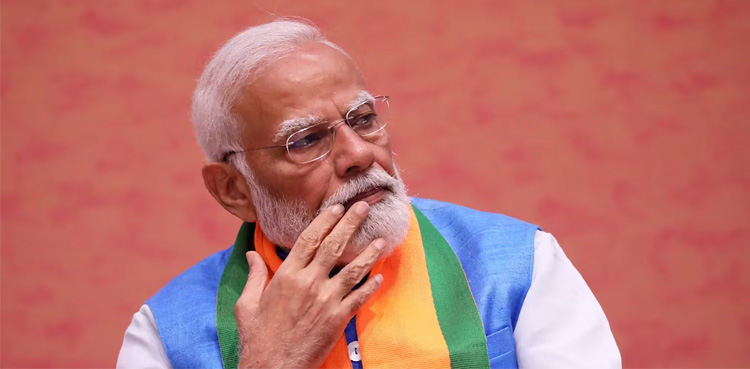Modi’s G7 Absence and Ottawa’s Unspoken Message

Alright, settle in for a moment. I’ve been mulling something over, something that’s been nagging at me as we edge closer to June, and with it, the G7 summit up in Ottawa. You know how these things usually go – a flurry of diplomatic activity, guest lists being discreetly firmed up, the usual hum of anticipation. But this year, there’s a rather noticeable, shall we say, gap in the expected attendees. And it’s a gap that, to my mind, speaks volumes. I’m talking, of course, about the Indian Prime Minister, Narendra Modi. For the first time in quite a few years, it seems Mr. Modi wasn’t on that guest list.
Now, this isn’t just some minor oversight, a diary clash, or a simple administrative hiccup. We’re hearing that countries like South Africa, vital for its continental perspective, Ukraine, for obvious and tragic reasons, and Australia, a key ally in the Indo-Pacific, have all got their RSVPs in, invitations confirmed. But for India? A rather telling silence from the Canadians. And when I say silence, I mean the kind of tight-lipped, “no comment” approach that usually means there’s a rather large elephant shuffling about in the room. The takeaway, and it’s hard to escape this conclusion, isn’t just that relations between Ottawa and New Delhi are a bit frosty. No, this feels like a genuine fracture, a deep, splintering crack.
To really get to grips with this, you have to look beyond the polite, often unrevealing, surface of international diplomacy. There’s a much grittier, and frankly more disturbing, drama playing out. Let’s not beat around the bush: Canada has, quite publicly and shockingly, accused the Indian government of having a hand in the killing of Hardeep Singh Nijjar, a Sikh activist, on Canadian soil. Now, that’s an accusation of an almost unheard-of severity between two Commonwealth nations, a charge that cuts right to the heart of sovereignty and international law. It’s the kind of thing that doesn’t just get brushed under the carpet.
And it’s not an isolated incident, is it? This major accusation sits atop a pile of other diplomatic spats, tit-for-tat expulsions of diplomats, persistent and unsettling allegations of surveillance activities targeting communities within Canada, and a general sense of unease and tension that’s been bubbling up. Given all that, it’s perhaps not entirely shocking that the Canadian government might be thinking twice about extending a hand of friendship, or at least a summit invitation, to India’s leadership right now. One might even say it’s a rather predictable, if regrettable, consequence.
From the Indian side, the official line from their foreign office is a rather terse “no information” regarding any potential visit by Mr. Modi. Well, what else would they say, one might ask? But if you listen to the whispers, the word on the grapevine in diplomatic circles suggests that New Delhi isn’t exactly chomping at the bit for an invitation either. Perhaps there’s a feeling that turning up in Ottawa right now would mean walking into a situation far more focused on uncomfortable scrutiny and pointed questions than on the kind of global stagecraft Mr. Modi often excels at. It’s a sort of preemptive diplomatic retreat, maybe – anticipating more heat than light.
And this is what really strikes me, what feels so significant. Cast your mind back to just last year. India was riding high, wasn’t it? Hosting the G20 summit with enormous fanfare, showcasing its global ambitions, Mr. Modi very much the man of the moment, presenting India as a ‘Vishwaguru,’ a teacher to the world. The theme was “One Earth, One Family, One Future.” A beautiful sentiment. And now, this. This silence from the G7, this apparent exclusion, feels deafening in comparison. It’s a subtle shift, perhaps, not shouted from the rooftops, but it’s undeniably serious. It feels like Mr. Modi is being quietly but firmly nudged to the sidelines, not just by Canada with its very specific and grave grievances, but possibly by a broader sentiment within these key diplomatic circles.
Look, in this complicated, often messy, world of shifting power balances and sometimes fragile alliances, simply being there matters. Presence counts. Being at the table, part of the conversation, able to influence the debate – that’s the currency of international relations. But an absence, especially an absence as loaded and conspicuous as this one, well, that can sometimes say more than any carefully worded communiqué or official statement.
Is this just a temporary blip, a particularly nasty bilateral spat that will eventually blow over? Or are we seeing something more fundamental here – a deeper reassessment of India’s place, or at least its current leadership’s place, among its democratic partners when actions are perceived to cross certain lines? I find myself wondering about the long-term implications, not just for Canada-India relations, but for India’s wider engagement with the West, and for that delicate dance of influence in the Indo-Pacific.
As we look towards Ottawa, that empty chair, should it indeed remain so, will be more than just a vacant seat. It will be a symbol. A quiet, perhaps uncomfortable, testament to how quickly diplomatic fortunes can change, and how even the most powerful and ambitious leaders can find themselves on the outside looking in. This particular absence, I can’t help but feel, might just tell us everything we need to know about the current state of play.
from International News Today – Breaking News, US News, World News https://ift.tt/wGA1KyQ











Leave a Reply